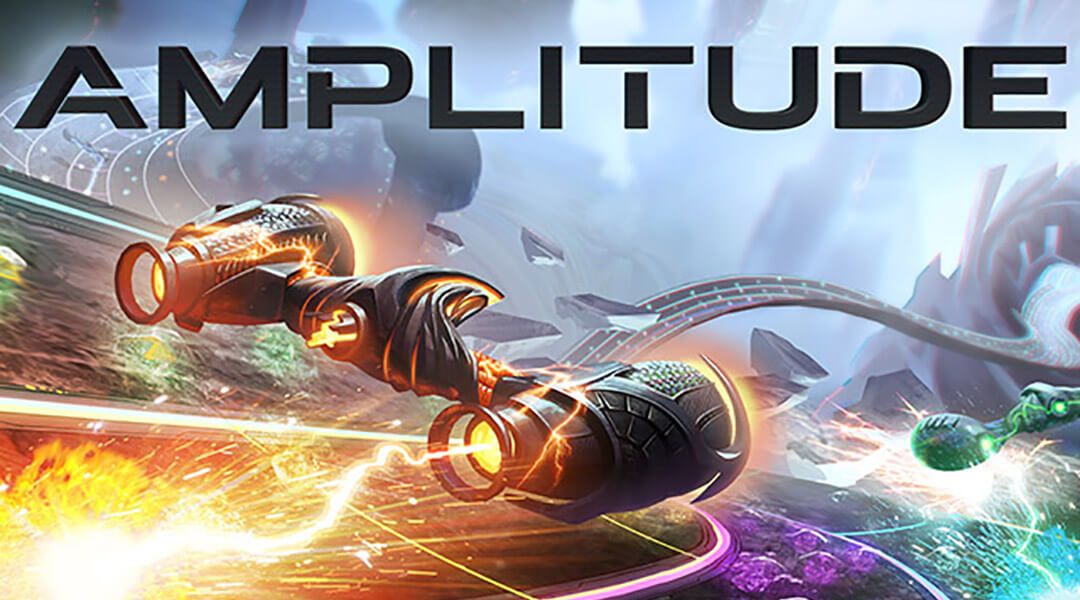Amplitude is a throwback to old school rhythm games and connects with the nostalgic audience, but may lack the universal appeal of games like Rock Band or Guitar Hero.
For many gamers, the rhythm genre consists solely of Guitar Hero, Rock Band, and maybe Donkey Konga. However, players with a little more experience are likely aware that those plastic instrument-based games are just the tip of the iceberg; he genre was around for years before the mass audience took any interest. Harmonix's Amplitude is a throwback to those old days, in more ways than one.
In case anyone is unfamiliar, Amplitude is a Kickstarter funded reboot of the 2003 PS2 game of the same name. The original and its predecessor Frequency was (also) developed by Harmonix and was wildly popular among fans of the emerging rhythm genre. Years later, Harmonix was ready to revisit the series and went to Kickstarter to pull in over $844,000 for the project. The game recently launched on PS3 and PS4 after a few delays and fans can now enjoy over 30 tracks for $20.
Amplitude leans on some of the same tools that most rhythm games do, but also introduces a few unique twists into the mix. Players hit notes scrolling down the screen using three different buttons (L1, R1, and R2). Unlike many other games in the genre, though, there are multiple tracks for players to keep an eye on this time around. Each track of music represents a different musical element and in order to keep that part of the song alive, players must nail streaks and jump back and forth between the different tracks using the d-pad.
The jumping between tracks and instruments mechanic not only offers a unique challenge to Amplitude, but it also gives players far more control than they would usually have over the music that is being played. Players decide whether to kick the song off on the drum track, or the synth, or when to pull in the vocals. The unique soundtrack is very spacey and the music works incredibly well for these kind of experimental remixes. This bit of control offers a welcome opportunity for creativity that is often lacking in music games.
The game has a few modes to keep players busy including a campaign, free play mode, and multiplayer. The campaign is the most engaging mode and can be used to unlock additional tracks for the secondary modes. Players can rack up high scores and compete for a spot on the leaderboards by stringing together long chains of notes and nailing instrument transitions. Playing on higher difficulties allows for higher scores because there are more notes up for grabs.
The game attempts to guide players through the tracklist with a plot about exploring the brain of a comatose patient, but the narrative isn't very engaging or important. Players who connect with Amplitude will do so because they are addicted to getting a perfect score on a track or want to get good enough to play on the highest difficulty, not because they want to see if the mystery patient ever wakes up. The narrative doesn't hurt the gaming experience, but it isn't helping much either.
The game's lack of engaging narrative and experimental soundtrack are likely to alienate some of the more casual gamers who would give Amplitude a shot. The $20 price tag is a nice selling point, but this feels like the kind of game that has been specially made for music lovers and old school rhythm game addicts. The lack of mass appeal isn't necessarily a bad thing, though, as the game's Kickstarter suggested that the project was a labor of love for fans who have been clamoring for a return to the PS2 game's world.
A major perk over the Rock Bands of the world is the lack of peripherals and external hardware. This game doesn't require anything more than a console and a standard controller, but still manages to make players feel like they are in control of a full band. The title seems like a perfect fit for the PS Vita, so we hope to see a port over to the handheld at some point. A slight downside of playing on the big screen, which will only impacts some gamers, is that the swirling backgrounds are very likely to make some people feel dizzy or disoriented.
Amplitude may not be for everyone, but the game is sure to offer at least a few hours of psychedelic entertainment for fans of unique music, old school rhythm games, and affordable price tags.
Amplitude is now available on PS3 and PS4. Game Rant was provided a PS4 code for this review.

